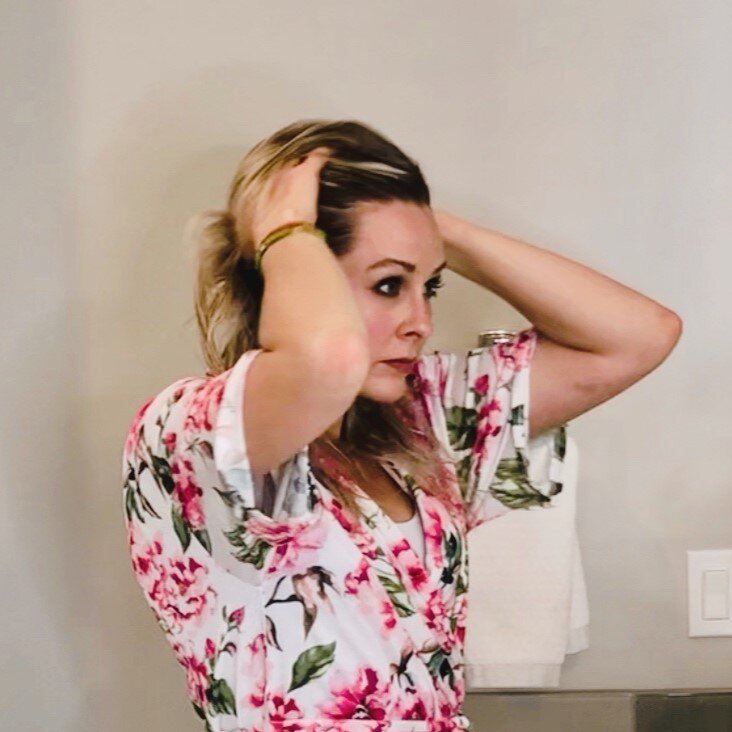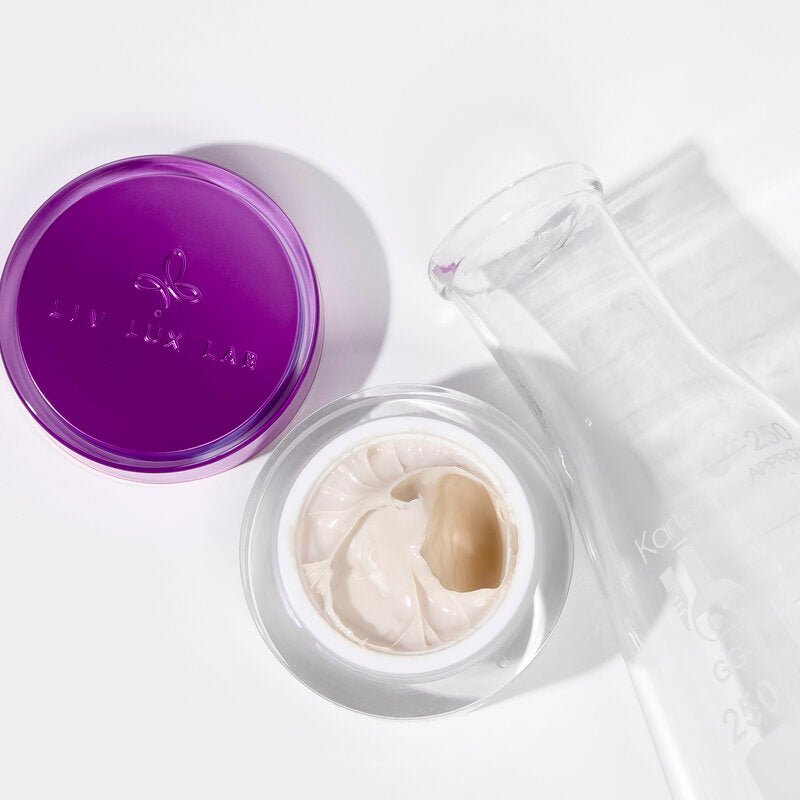When you’re experiencing hair loss due to breakage, a dry and irritated scalp, or overall damage from styling and environmental stressors, your hair needs a reboot. That’s exactly why every Save Me From Tip to Root Hair Reboot contains caffeine—one of the most effective, clinically supported ingredients for scalp and hair health.
As a trained physiologist and cosmetic chemist, I’ve spent over 20 years developing high-performance, clean beauty formulas. After surviving stage 3 breast cancer, I became even more committed to safe, results-driven ingredients. Caffeine isn’t just a stimulant—it’s a scalp-penetrating, bond-repairing powerhouse.
☕ It Literally Gets Under Your Skin
Caffeine is one of the best ingredients for penetrating the skin and scalp. According to Herman and Herman, when caffeine is added to a topical formula, it acts as a potent antioxidant and microcirculation booster. A 2006 study further confirmed that topical caffeine is far more effective than oral ingestion for scalp and follicle benefits. In other words, your morning Diet Coke won’t cut it—but our hair masks will.
A Korean study also found that topically applied caffeine permeates the scalp with high efficiency, while ingested caffeine barely reaches the follicle level. This is why our reboots are designed to deliver caffeine directly to the source—your scalp and hair follicles.
🛡️ Antioxidant Activity That Protects Your Scalp
Free radicals from UV exposure and pollution accelerate aging in both skin and hair. Caffeine helps neutralize these radicals, protecting the scalp from oxidative stress and slowing the aging process. A healthy scalp is the foundation for healthy hair—and caffeine helps maintain that balance.
Our Tip to Root Hair Reboots work as both a split-end treatment and a scalp therapy, with caffeine playing a key role in both
💧 Hydration Benefits for Dry & Oily Scalp
In a German study by Brandner et al., caffeine was shown to reduce transepidermal water loss in male skin, improving hydration through osmosis. This is a game-changer for those with dry scalps, but it also helps balance oily scalps by regulating sebum production and supporting barrier function.
Whether you’re dealing with flakes or excess oil, caffeine helps restore equilibrium
🧬 Hair Thickening & DHT Blocking
As we age, the enzyme 5-alpha-reductase converts testosterone into DHT, which contributes to hair thinning and eventual baldness. Caffeine has been shown to inhibit this enzyme, slowing the progression of hair loss and supporting follicle health.
It also stimulates blood flow to the scalp, creating a nutrient-rich environment for stronger, thicker hair.
🚿 Outside-In Is Best
A study published in Skin Pharmacology and Physiology found that caffeine penetrates the scalp in under two minutes and remains active for hours—even up to 24 hours post-application. This means our hair masks deliver sustained benefits long after you rinse them out.
Compared to ingestible supplements, topical caffeine offers faster, deeper, and longer-lasting results.
🔄 Better Circulation = Better Hair
Healthy hair starts with a healthy scalp. Caffeine improves microcirculation, enhancing blood flow and nutrient delivery to the follicles. This helps replenish damaged strands from tip to root and supports long-term hair resilience.
🌿 Complementary Ingredients in Our Formulas
Caffeine works synergistically with other high-performance ingredients in our reboots:
• Creatine – energizes and strengthens follicles → Read more
• Peptides – rebuild broken bonds and improve elasticity → Read more
• Fenugreek – our proprietary Fenugen technology supports scalp microbiome and follicle health → Read more
SAVE ME FROM knows women aren’t going to stop coloring, bleaching, styling, and playing with their hair (and definitely can’t stop aging!) With our advanced hair science ingredients, we can maintain your hair’s health. We’ve included caffeine in each and every product alongside our tip to root Fenugen technology.
So, skip the salon treatment for damaged hair and have your own salon treatment at home! Don’t start your hair repair process with your hands tied behind your back! Let us help you figure out which products would be best for your lifestyle.
FAQ About Caffeine For Hair
Does caffeine help repair damaged hair?
Yes. It improves circulation, blocks DHT, and supports hydration and antioxidant protection.
How long does caffeine stay active in the scalp?
Up to 24 hours post-application, according to follicular penetration studies.
Is caffeine safe for color-treated or sensitive scalps?
Absolutely. Our formulas are clinically tested and safe for all hair types.
Recommended Products
References
- Herman A, Herman A. Caffeine’s Mechanisms of Action and Its Cosmetic Use. Skin Pharmacology and Physiology. 2013;26(1):8-14. doi:10.1159/000343174.
- Brandner JM, Behne MJ, Huesing B, Moll I. Caffeine improves barrier function in male skin. International Journal of Cosmetic Science. 2006;28(5):343-347. doi:10.1111/j.1467-2494.2006.00346.x.
- Kim C, Shim J, Han S, Chang I. The skin-permeation-enhancing effect of phosphatidylcholine: Caffeine as a model active ingredient. Journal of Cosmetic Science. 2002:363-374.
- Otberg N, Teichmann A, Rasuljev U, Sinkgraven R, Sterry W, Lademann J. Follicular Penetration of Topically Applied Caffeine via a Shampoo Formulation. Skin Pharmacology and Physiology. 2007;20(4):195-198. doi:10.1159/000101389.






